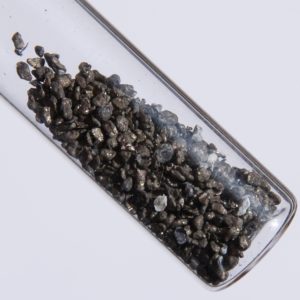Monocalcium Phosphate is an inorganic compound with the chemical formula Ca(H2PO4)2 (“ACMP” or “CMP-A” for anhydrous monocalcium phosphate). It is commonly found as the monohydrate (“”MCP” or “MCP-M”), Ca(H2PO4)2·H2O (CAS# 10031-30-8). Both salts are colourless solids.
Uses
- They are used mainly as superphosphate fertilizers and are also popular leavening agents.
Benefits
- Calcium dihydrogen phosphate is used in the food industry as a leavening agent, i.e., to cause baked goods to rise. Because it is acidic, when combined with an alkali ingredient, commonly sodium bicarbonate (baking soda) or potassium bicarbonate, it reacts to produce carbon dioxide and a salt. Outward pressure of the carbon dioxide gas causes the rising effect. When combined in a ready-made baking powder, the acid and alkali ingredients are included in the right proportions such that they will exactly neutralize each other and not significantly affect the overall pH of the product. AMCP and MCP are fast acting, releasing most carbon dioxide within minutes of mixing. It is popularly used in pancake mixes. In double acting baking powders, MCP is often combined with the slow acting acid sodium acid pyrophosphate (SAPP).
Cautions
- No significant side effects reported. Prolonged using of phosphate salts may upset the balance of phosphates and other chemicals in the body. High blood phosphate level may lead to several side effects: Development of renal disease. Damages blood vessels. Induces aging processes.
Interactions
n/a
Other names
- n/a
References
Source: FoodChemadditives, http://www.foodchemadditives.com/side_effects_info/639
Wikipedia, https://en.wikipedia.org/wiki/Monocalcium_phosphate

